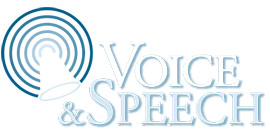Transcript
Practice is a little like the nagging nanny of public speaking training, the bit we all wish we could ignore. It’s boring. It’s not sexy. Lessons are fun—hopefully—but practice, just shoot me now.
Of course you know, you know, practice is essential to becoming a better public speaker. No matter what you know to be right, when the pressure’s on, when you have to perform, your body will do what it’s used to doing, not what you hope it will do. Bruce Lee said, “Under duress, we do not rise to our expectations—we fall to the level of our training.” Practice is the only way to take a new skill and make it natural enough so it pays off when you’re performing.
People frequently ask, “How often do I need to practice,” and my first answer is, “As often as possible.” Obviously, the more frequently you repeat an action, the more quickly and thoroughly it changes your brain and becomes muscle memory. Daily practice would be great, but do it at least three times per week.
The next question usually is, “How much time should I practice each day?” Again, my response is, “As much as you can.” I often suggest 20-30 minutes per day, but when push comes to shove, any time for practice is better than no time.
Another common question is, “Does it matter when I do my practice? Should I do it first thing in the morning or in the evening before bed?” Well, the good thing about a morning practice is that it gets your voice and body warmed up for the day ahead, and with an evening practice you might learn better since research shows your brain processes new information during sleep. I don’t think it matters. Just choose a time when you can get it done on a regular basis.
People sometimes wonder, “For how long should I do each exercise?” Long enough to notice something, long enough to make an observation. Learning that produces lasting change requires attentiveness, so the success of an exercise depends on your level of awareness, your ability to notice what you’re doing and how you’re feeling before, during and after the exercise.
Former basketball coach, Bob Knight, famously said, “Everyone wants to be on a winning team, but no one wants to come to practice.” That’s human nature. But the harsh reality is you’ll never be a winning speaker without practice, no matter how many books you read or seminars you attend. Public speaking is about what you can do, not how much you know. It’s based on tangible skills, and skills require practice.
Effective public speaking starts weeks, months or even years before the performance. Make time to practice now. Plan at least three practices per week, twenty to thirty minutes per practice. If you can do more practice than that, wonderful. If you can’t manage that much do something. But remember, the speed of your progress and the extent of improvement in your public speaking skills is determined by the consistency and quality of your practice. Invest the time.
Public Speaking: Time to Practice
Public speaking skills require practice and practice takes time, but how much time? Nobody has all day. Here are some thoughts and suggestions addressing the practice-related questions that are commonly asked by students anxious to improve their public speaking skills.


